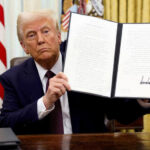As the U.S. elections draw near to its end, Coinbase’s CEO Brian Armstrong is navigating a rapidly changing political landscape, recognizing that his company’s future may hinge on the outcome. In the early years after founding the cryptocurrency exchange, Armstrong avoided engaging with Washington, D.C. However, as Coinbase grew, so did the need to influence policy and secure a favorable regulatory environment.
“We realized that crypto was getting big enough that we needed to engage actively in policy efforts,” Armstrong told CNBC in September, following a series of meetings with lawmakers. His commitment to this mission has intensified, with Coinbase emerging as a top corporate donor this election cycle, contributing over $75 million to the pro-crypto group Fairshake and its affiliated PACs, including a recent pledge of $25 million for the 2026 midterm elections. Armstrong has personally contributed more than $1.3 million to various candidates across the political spectrum.
Competitive Landscape and Regulatory Challenges
As Coinbase faces increasing competition from rivals like Crypto.com, its need for regulatory clarity is paramount. The Securities and Exchange Commission (SEC), led by Chair Gary Gensler, has filed a lawsuit against the company, claiming it sells unregistered securities. A judge has ruled that the case will proceed to jury trial, forcing Coinbase to defend itself while simultaneously seeking constructive dialogue with regulators to establish clearer laws governing the crypto industry.
In its latest earnings report, Coinbase missed revenue expectations, leading to a 15% drop in its stock price. The exchange’s market share in spot trading is declining as investors explore new options for accessing cryptocurrencies, particularly since the SEC approved spot exchange-traded funds (ETFs) earlier this year. BlackRock’s ETF chief noted that 75% of its Bitcoin buyers are newcomers to Wall Street, highlighting the shifting dynamics of the market.
Political Landscape and Cryptocurrency Advocacy
With the U.S. political landscape evolving, Coinbase is focusing its efforts on congressional races rather than the presidential contest. The company launched the Stand With Crypto Alliance last year, creating a grading system for congressional candidates based on their stance towards the crypto industry. In the competitive Ohio Senate race, for example, Democratic incumbent Sen. Sherrod Brown received an “F” grade, while Republican challenger Bernie Moreno, a blockchain entrepreneur, was rated “A.” To support Moreno’s campaign, $40 million from crypto backers has been allocated to unseat Brown.
Paul Grewal, Coinbase’s chief legal officer, has been actively engaging with both Trump and Vice President Harris’ campaigns, emphasizing that both candidates recognize the importance of addressing voters’ concerns about crypto regulation. Grewal stated, “They understand that in swing states, there are enough voters who care about crypto,” indicating a growing awareness among political candidates.
Mobilizing Support and Future Strategies
In an effort to increase voter engagement among digital asset owners, the Stand With Crypto Alliance has enlisted 1.8 million advocates nationwide and organized a bus tour through battleground states to promote voter registration. Faryar Shirzad, Coinbase’s chief policy officer, remarked on the potential impact of cryptocurrency as a significant issue in the upcoming elections.
With the political influence of the crypto sector expanding, nearly half of all corporate money raised this election cycle has come from crypto firms. Fairshake, a leading PAC in this space, has raised around $170 million and disbursed approximately $135 million to various campaigns. Ripple Labs, another major player in the crypto landscape, has also been active, contributing significant funds to political efforts while advocating for clearer federal regulations.
In a broader context, the outcome of the U.S. elections may shape the regulatory future of the crypto industry, making it a pivotal moment for Coinbase and its peers. The company is striving to build a political operation that can neutralize the politicization of cryptocurrency issues and focus on creating sensible legislation that promotes industry growth.




